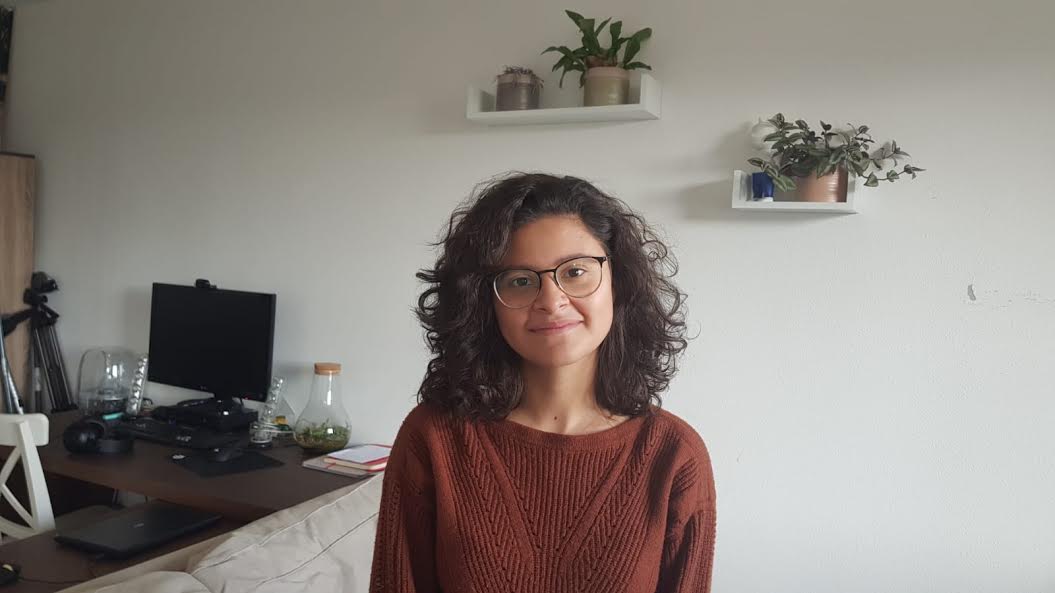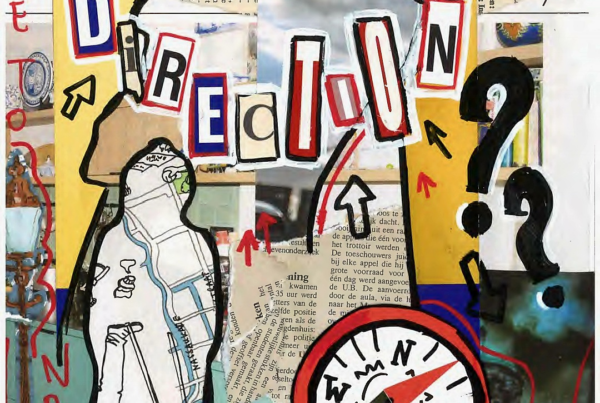

Joselyn Arevalo Moran
What is it like to be a Psychology student? Three questions for Joselyn Arevalo Moran (bachelor, second year).
What is the most useful thing you’ve learned from Psychology?
‘One of the most useful things I’ve come to realise from the course is that articles you may think are valid might not be as good as they seem. You see articles all the time – like ‘If your partner does this, it means…’, ‘Ten signs you’re…’ and other such popular written work. I would read these lousy articles all the time without thinking about where the authors got the information from. Obviously, I wouldn’t take them to heart, but I came to realise that they were taking information from badly summarised psychological articles. Now, when my mum tries to read into articles such as these, I realise how important it is to be aware and make others aware that these articles need to be more carefully read and perceived. These articles aren’t relaying information from psychological papers correctly, which is heavily damaging since people read these popular articles all the time.’
What do you like and dislike about Psychology at UvA?
‘I really liked how they made us participate in research in the first year, it gave us a different perspective and showed us what it’s like to be a participant. The lectures for colloquium points are really interesting too. I like the wide variety of lectures outside regular classes since there’s a lot to learn from them too. What I dislike about psychology here is how fast-paced it is. Sometimes it’s hard to maintain the passion for the subject when you’re trying to pass an exam.’
What has Psychology taught you about consequences? How have you applied it in your own life?
‘For me, I realised that the words and actions you use have a lot more impact than what you might actually think. While I was aware of this before doing psychology, I didn’t realise how much it affects other people or how damaging it can be. Now, I am more careful with my words. For example, people calling those with mental disorders ‘crazy’ or labeling them in a way that their disorder becomes their identity. It’s like telling someone ‘you are a certain disorder’ rather than ‘you have a certain disorder’. This taught me that one’s words and actions have quite on the perception of other people and how they see themselves.’

Joselyn Arevalo Moran
What is it like to be a Psychology student? Three questions for Joselyn Arevalo Moran (bachelor, second year).
What is the most useful thing you’ve learned from Psychology?
‘One of the most useful things I’ve come to realise from the course is that articles you may think are valid might not be as good as they seem. You see articles all the time – like ‘If your partner does this, it means…’, ‘Ten signs you’re…’ and other such popular written work. I would read these lousy articles all the time without thinking about where the authors got the information from. Obviously, I wouldn’t take them to heart, but I came to realise that they were taking information from badly summarised psychological articles. Now, when my mum tries to read into articles such as these, I realise how important it is to be aware and make others aware that these articles need to be more carefully read and perceived. These articles aren’t relaying information from psychological papers correctly, which is heavily damaging since people read these popular articles all the time.’
What do you like and dislike about Psychology at UvA?
‘I really liked how they made us participate in research in the first year, it gave us a different perspective and showed us what it’s like to be a participant. The lectures for colloquium points are really interesting too. I like the wide variety of lectures outside regular classes since there’s a lot to learn from them too. What I dislike about psychology here is how fast-paced it is. Sometimes it’s hard to maintain the passion for the subject when you’re trying to pass an exam.’
What has Psychology taught you about consequences? How have you applied it in your own life?
‘For me, I realised that the words and actions you use have a lot more impact than what you might actually think. While I was aware of this before doing psychology, I didn’t realise how much it affects other people or how damaging it can be. Now, I am more careful with my words. For example, people calling those with mental disorders ‘crazy’ or labeling them in a way that their disorder becomes their identity. It’s like telling someone ‘you are a certain disorder’ rather than ‘you have a certain disorder’. This taught me that one’s words and actions have quite on the perception of other people and how they see themselves.’



